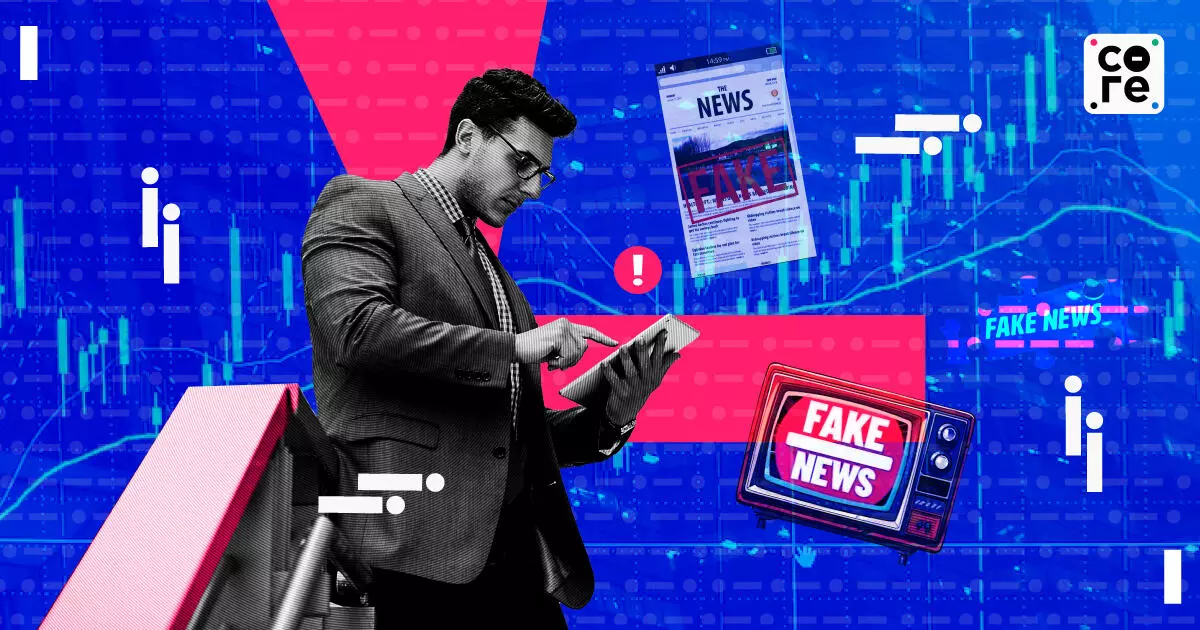
In A World Of Misinformation, Can Business Still Think Clearly?
At a time of psychological warfare and viral falsehoods, even business decision-making is at risk. As misinformation blurs the lines between fact and fiction, business leaders must double down on evidence, not gut instinct shaped by social media chaos.

Someone forwarded a Twitter link on Friday, which I clicked through. It led to an unknown user with a large follower count confidently claiming that former Pakistan Prime Minister and cricketer Imran Khan had passed away.
The question appended to the forward was: “Is this true?”
I replied with a question of my own: Why—or how—would some random person on social media, sitting in an unknown corner of the country, know what was happening to Imran Khan and speak with such certainty?
There was no response. And rightly so, because there isn’t a satisfactory answer. Not from the person who forwarded the message, and surely not from the original poster if I had challenged him.
But the issue is larger.
A New Era Of Misinformation
We have entered a new dimension of misinformation and psychological operations, which are now integral to modern conflict, be it the war between Israel and Hamas or Russia and Ukraine. And we are now witnessing this here, too.
This means that almost nothing of apparent importance can be taken at face value. And since mainstream media—especially television—often reproduces these social media claims with alarming speed, that cannot be trusted either.
The line between social media and traditional news media has all but vanished, with filtering processes reduced to minimal or non-existent.
This is, of course, bad news for all of us in the media—but this isn’t just about the media.
The person who forwarded the post runs a reasonably sized business.
I wanted to ask him something.
As an entrepreneur or business leader, would you make decisions that impact your organisation’s future based on random posts and scatter-brained claims that increasingly flood social media?
Obviously not.
You wouldn’t go out and invest in a new plant or explore a new line of business because someone you’ve never met—or will likely never meet—made a baseless claim on social media.
And if you are the kind of person who relies on gut instinct, then it’s your own gut you’d trust, not someone else’s. I’m fairly certain of that.
And yet, we’re now in a situation where we seem willing to trust—and almost believe—random statements on non-trivial issues.
The argument I’ve often heard is: “This doesn’t affect me, so I don’t bother much. But if it were to impact me, say, if the government were to announce a new policy that affects my business, I’d definitely research it and authenticate it.”
Turns out, it doesn’t work like that.
As more falsehoods permeate the information ecosystem and the spheres of influence we operate in, we face a deeper threat: the erosion of our collective ability to think clearly and rationally about what is true and what is not.
Falsehoods Spread Fast, Facts Struggle to Keep Up
When hit with an avalanche of falsehoods, it becomes harder to distinguish fact from fiction. We get tired of even trying, and often default to the easiest interpretations.
We increasingly start believing anything that flies on social media. Take, for example, a viral campaign highlighting a defect in a competitor’s product or service—more likely engineered than real.
There’s a larger context to all of this.
The conflict with Pakistan, with China floating somewhere above, a country we now share deeply entangled relations with, is going to be a long one.
While some threats may recede over time as reason prevails, there is no guarantee that something kinetic won’t flare up again.
Even if the firing of missiles pauses for now, cyberattacks and psychological operations are likely to continue—or even escalate.
Decisions Must Rest On Evidence, Not Noise
In a situation like this, decision-making must lean more than ever on hard data and evidence. It’s not that a random social media post will cause companies to change direction, but the time wasted analysing the outcome of something that was false to begin with is unfortunate, if not criminal.
A long war can certainly inflict pain on the economy. But India’s economy is resilient, deep, and will continue to grow.
Our minds, however, must also stay strong and focused.
We must be far more discerning about what we consume—and who we choose to believe.
At a time of psychological warfare and viral falsehoods, even business decision-making is at risk. As misinformation blurs the lines between fact and fiction, business leaders must double down on evidence, not gut instinct shaped by social media chaos.
Zinal Dedhia is a special correspondent covering India’s aviation, logistics, shipping, and e-commerce sectors. She holds a master’s degree from Nottingham Trent University, UK. Outside the newsroom, she loves exploring new places and experimenting in the kitchen.

